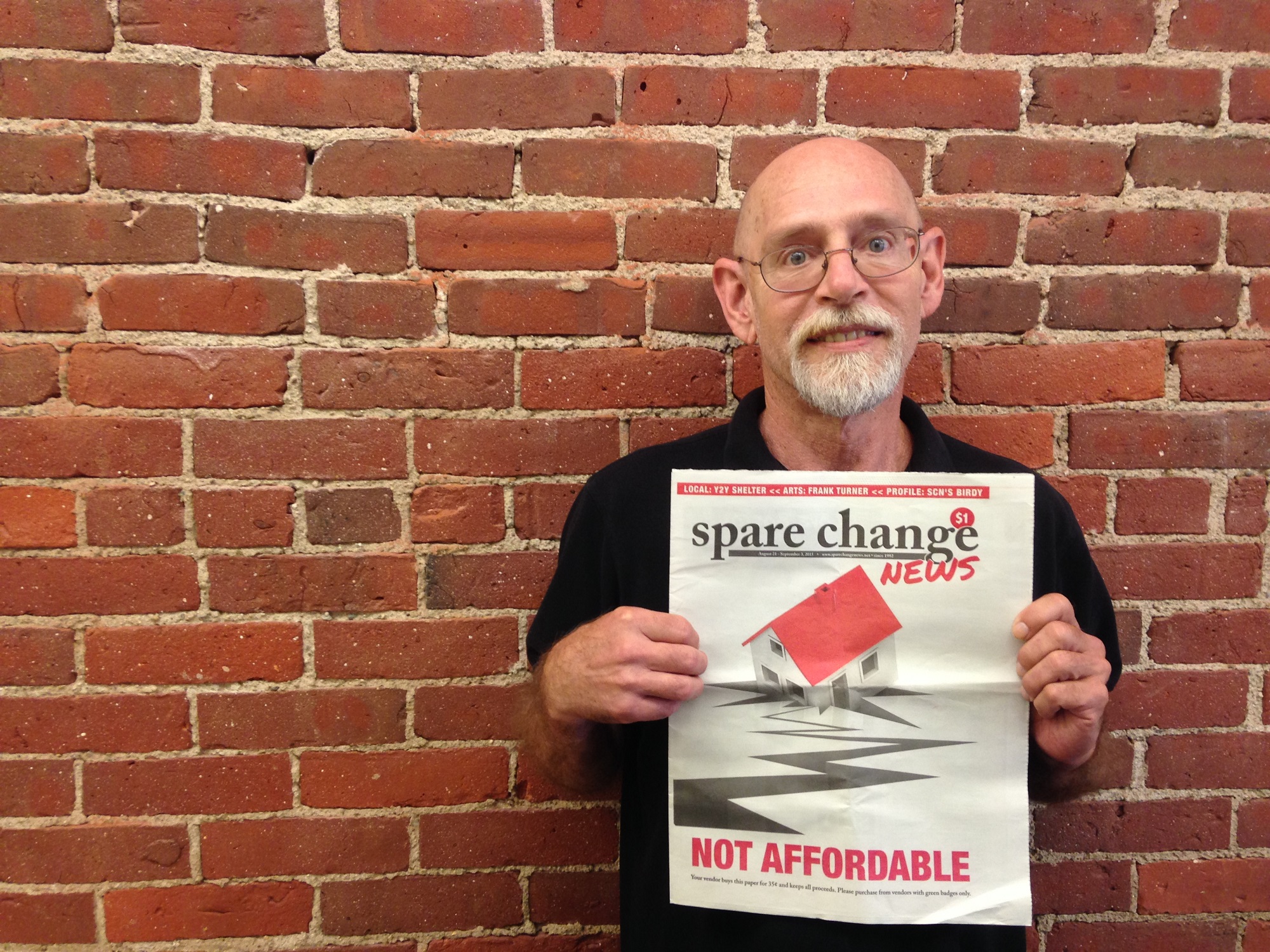Cleve Rea, an activist for the homeless community, is starting a new program to pair homeless individuals and families with concerned citizen mentors, he announced on Spare Change News TV on August 31.
The program, dubbed the Boston Homeless Inclusion Initiative, will provide a support system and community for homeless individuals and families. A major goal of the project will be to assist in the navigation of the often-confusing and bureaucratic web of governmental support systems. It will be operated in collaboration with the Boston Homeless Solidarity Committee.
Rea states that the initiative will be focused on “creating a small community of citizens who incorporate a homeless person or a homeless family into their lives, and come together and take care of one another as a community. Then as a result, we will hope to see that person or family come out of the darkness of homelessness and into normal society.”
He cites housing as an especially important issue that these support communities could help with: “Housing is the biggest issue that faces homeless people outside of mental health care,” and finding and using housing subsidies is a huge challenge, he explains.
Rea says the primary factor that influenced him to create the Initiative was his own personal experience during the seven months when he was homeless. Rea struggled with severe depression and was hospitalized three times in 2014: when he got out the last time, his savings were gone and he had nowhere to go. “My initial impression was one of outright terror,” he remembers.
He ended up going to the Long Island Shelter less than a week before it would abruptly close last October. The subsequent rush to find housing for those displaced by the shelter’s closure was chaotic and people often ended up staying in terrible conditions, he says. “I’d never been part of anything remotely similar to that experience.”
Rea became an unofficial spokesperson for those displaced by the closed shelter and was interviewed one day on WBUR in the wake of the closing. He mentioned that he spent his mornings at Farmer Horse Coffee on Mass Ave.—and suddenly, a friend, who had heard him on the radio, showed up unexpectedly.
That friend was a coworker from a previous job who wanted to help. He delivered the news that there was a small group of friends from the same job who had also heard the story. This group served as a support system for Rea: they were a “little community who looked after me,” Rea states.
Whenever Rea needed to go to Mass General to get treatment for his depression, for example, one friend would pick him up and spend time with him afterward. In the part of Rea’s life when he was a homeless person, he admits he often felt invisible, and he cites this as a hugely important experience.
With the Boston Homeless Inclusion Initiative, he hopes to “find citizens who would like to help reduce homelessness” and who are willing to do for another homeless individual or family what the small group of former coworkers did for him.
The concept is centered around the idea that “all of us homo sapiens are social beings,” he says. “We interact with one another for the good of one another. We’re trying to take that idea of intrinsic community so as to help the homeless person navigate their way out of the place where they find themselves.
“My eyes have really been opened wide [to the reality of homelessness],” he says of his experiences.
Though the idea is still in an extremely early stage, Rea has set up a Facebook page for the community to share its thoughts (search “Homeless Inclusion Initiative”).

Leave a Reply
You must be logged in to post a comment.